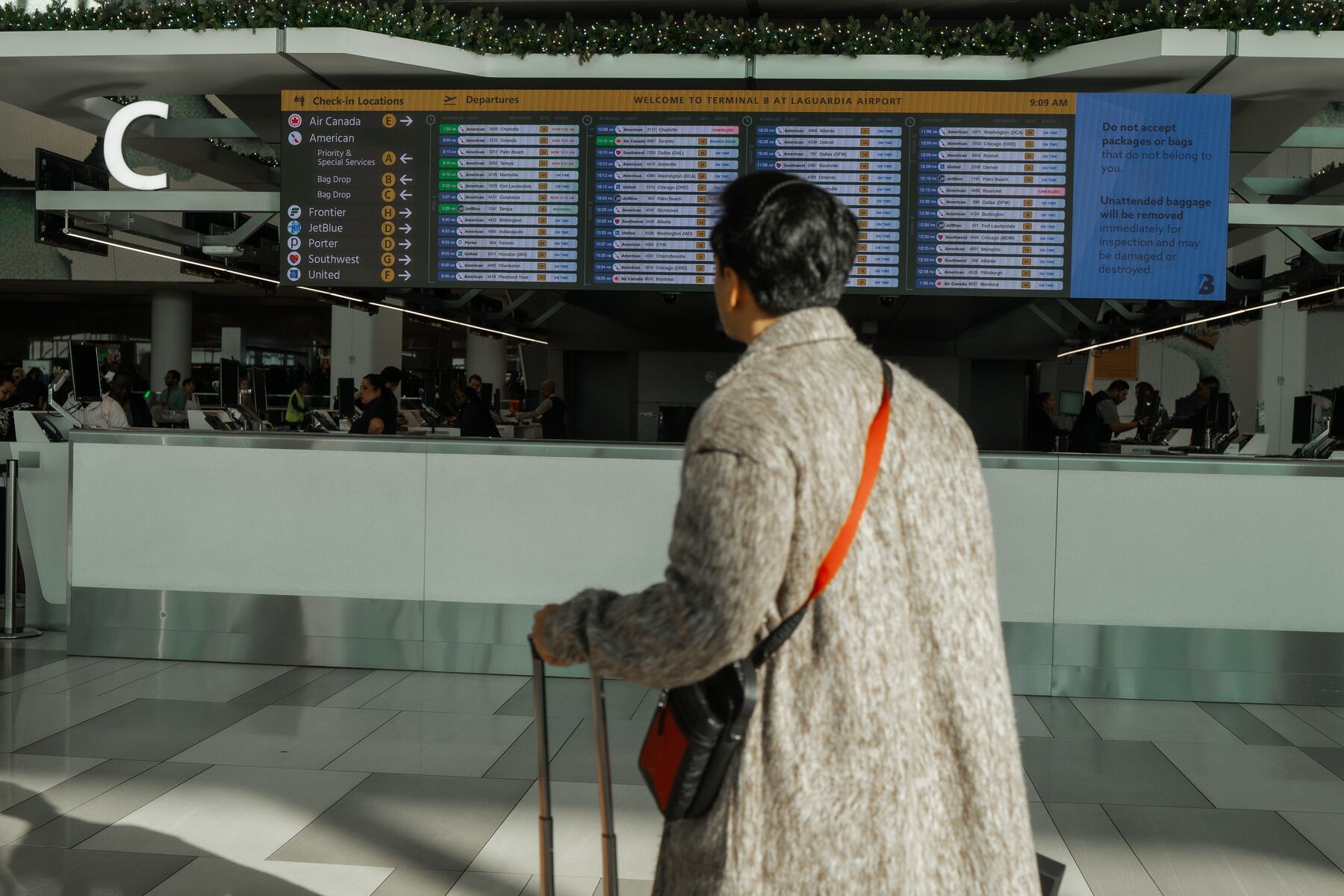Business
US Airlines Cancel Over 1,000 Flights Amid Ongoing Shutdown

U.S. airlines canceled more than 1,000 flights on Saturday, marking the second consecutive day of significant reductions tied to the Federal Aviation Administration’s (FAA) directive aimed at curbing air traffic due to the ongoing government shutdown. As of now, the cancellations have not caused extensive disruptions at major airports, but the situation is evolving, impacting travelers and businesses alike.
The FAA’s order, which affects approximately 40 targeted airports, initiated a reduction of air traffic by 4% of scheduled flights. This figure is expected to rise to 10% by Friday, as reported by various flight tracking services, including FlightAware. Emmy Holguin, a traveler from Miami, expressed concern over the disruptions, stating, “We all travel. We all have somewhere to be. I’m hoping that the government can take care of this.”
Travel Disruptions Intensify
The airport in Charlotte, North Carolina, experienced the highest number of cancellations, with 120 flights affected by midday Saturday. Other airports in cities like Atlanta, Chicago, Dallas, Denver, and Orlando also reported significant disruptions. Staffing shortages, particularly in Charlotte and Newark, New Jersey, contributed to the traffic slowdowns.
While not all cancellations stemmed directly from the FAA’s order, the overall numbers reflect a growing concern. Analysts have warned that if cancellations continue to escalate, the effects will extend beyond air travel, especially as the Thanksgiving holiday approaches.
Transportation Secretary Sean Duffy highlighted the potential for further cuts if conditions do not improve, noting that many air traffic controllers have been working without pay for nearly a month. As a result, some controllers are calling in sick, exacerbating existing staffing shortages. The National Air Traffic Controllers Association has indicated that most controllers are required to work mandatory overtime six days a week during the shutdown, with many seeking additional employment to meet their financial obligations.
Economic Ripple Effects
The implications of the shutdown extend into various sectors. As Patrick Penfield, a professor of supply chain practice at Syracuse University, explained, nearly half of all U.S. air freight is transported in the cargo holds of passenger aircraft. Major disruptions could lead to increased shipping costs, which may ultimately be passed on to consumers.
Greg Raiff, CEO of Elevate Aviation Group, noted the cascading effects of the situation: “This shutdown is going to impact everything from cargo aircraft to people getting to business meetings to tourists being able to travel. It’s going to hit hotel taxes and city taxes.” The potential economic losses could reverberate through tourism, manufacturing, and retail sectors.
The uncertainty surrounding flight cancellations poses additional challenges for travelers. Heather Xu, who was in Miami after a cruise, commented on the stress of navigating travel disruptions, stating, “Travel is stressful enough. Then you put these disruptions in place, and it really makes everything more challenging.”
As the situation develops, rental car companies have reported a surge in one-way reservations, while some individuals are opting to cancel flights altogether. With ongoing uncertainty regarding air travel, both travelers and businesses are bracing for further disruptions in the days to come.
-

 Lifestyle4 months ago
Lifestyle4 months agoLibraries Challenge Rising E-Book Costs Amid Growing Demand
-

 Sports3 months ago
Sports3 months agoTyreek Hill Responds to Tua Tagovailoa’s Comments on Team Dynamics
-

 Sports3 months ago
Sports3 months agoLiverpool Secures Agreement to Sign Young Striker Will Wright
-

 Lifestyle3 months ago
Lifestyle3 months agoSave Your Split Tomatoes: Expert Tips for Gardeners
-

 Lifestyle3 months ago
Lifestyle3 months agoPrincess Beatrice’s Daughter Athena Joins Siblings at London Parade
-

 World3 months ago
World3 months agoWinter Storms Lash New South Wales with Snow, Flood Risks
-

 Science4 months ago
Science4 months agoTrump Administration Moves to Repeal Key Climate Regulation
-

 Science3 months ago
Science3 months agoSan Francisco Hosts Unique Contest to Identify “Performative Males”
-

 Business4 months ago
Business4 months agoSoFi Technologies Shares Slip 2% Following Insider Stock Sale
-

 Science4 months ago
Science4 months agoNew Tool Reveals Link Between Horse Coat Condition and Parasites
-

 Sports4 months ago
Sports4 months agoElon Musk Sculpture Travels From Utah to Yosemite National Park
-

 Science4 months ago
Science4 months agoNew Study Confirms Humans Transported Stonehenge Bluestones









